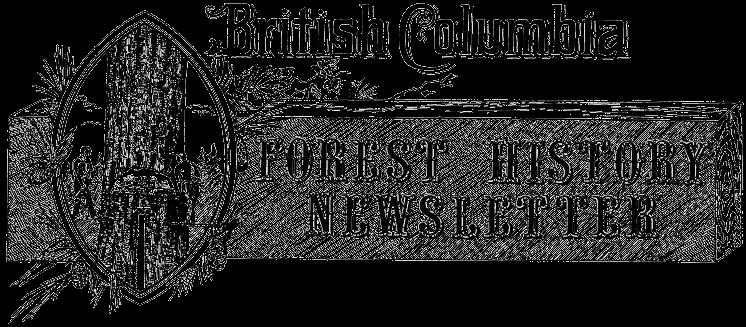
3 minute read
Harbanse Singh (Herb) Doman .... 1
(Continued from page 1) property taxes. I visited and assessed most of these parcels, developed a forest management plan, and calculated a sustainable harvest level. A business plan was produced which included Doman building a pulp mill on Vancouver Island and managing the young forests intensively1 (which was not being done by the BC Forest Service). The economic returns to Vancouver Island's economy would have been enormous and perpetual.
Despite Herb Doman being well connected with then Premier Bill Bennett, the Forest Service turned down the proposal, keeping these lands for First Nations' treaty settlements, trades with forest companies for desired parklands, and development. Doman was an outsider; the concept was too unconventional. Today, there is no Island Plantation Reserve; a few Woodlot Licences and small parks are the only forested areas left undeveloped and in public ownership.
Advertisement
Doman had built his enterprise by being efficient and taking chances. Two stories will illustrate.
The integrated Coastal forestry companies were inefficient and wasteful sawmillers. Doman would buy pulp log booms from major companies for a fraction of the price of a sawlog boom. He would then take out the logs that could be sawn in his modern mills, and sell the remaining, genuine pulp logs for the same price he paid for them.
From Ken Goudy Collection 1 The plan included the application of intensive silviculture (spacing young stands, fertilization, prompt reforestation) and commercial thinning (logging the poorer trees to concentrate future growth on the more valuable trees to enhance growth rate and value). Both these approaches to forest management are labour-intensive and greatly improve financial returns. The Doman mills were efficient enough to profitably convert the small logs from commercial thinning into lumber.

Doman would sometimes have a ship loading lumber at one of his mills before he had actually sold the lumber and knew the ship's destination.
Despite being a multi-millionaire, Doman was unassuming. Once, long before I got to know him through business, I was hitchhiking near Duncan with my toddler daughter. Herb picked us up in his Cadillac and took us to our destination which was out of his way. He was pleasant and down-to-earth.
Although he ran one of the biggest forestry companies in BC, he kept his head office in Duncan. "Everybody said you couldn't have a head office in Duncan but of course I had to prove differently. We built here. People get here."
But he took two gambles too many.
To get access to needed timber supplies and to integrate his operations with a pulp mill, in 1980 Doman entered a joint venture which bought Rayonier Canada's timber tenures, sawmills and pulp mills in BC. But the deal put his company into heavy debt. In 1989, he increased his ownership share in the joint venture and his debt load. Doman Industries never recovered.
To make matters worse, US forestry giant Louisiana-Pacific, after a year of accumulating Doman shares, made an offer to buy the whole company in October 1988. Louisiana-Pacific withdrew its offer a month later, possibly after more careful scrutiny of Doman's books. Herb Doman was accused of informing former BC Premier Bill Bennett and his brother of the collapsed deal five minutes after being informed himself. The Bennett brothers immediately sold 500,000 Doman shares, avoiding a huge loss. Six months later, the three men were acquitted in BC Provincial Court of insider trading. But the BC and Ontario Securities Commissions carried out investigations which dragged on for years, culminating in conviction by the BCSC in 1996. A Supreme Court of Canada appeal followed. It failed and the three men ended up paying $1 million to the BCSC and receiving securities trading bans. His connection with Bill Bennett had not got him the licence over the Island Plantation Reserve, but Doman was loyal to his friend even though it involved an illegal act.
By the mid 1990s, debt, poor markets and increasing competition put more pressure on the company and its founder. Huge interest payments precluded capital upgrades to the mills. Efficiency dropped. Herb Doman had a severe stroke in 1995, never fully recovering. He died in 2007. The company limped along under his son, Rick, until sold in 2004.





